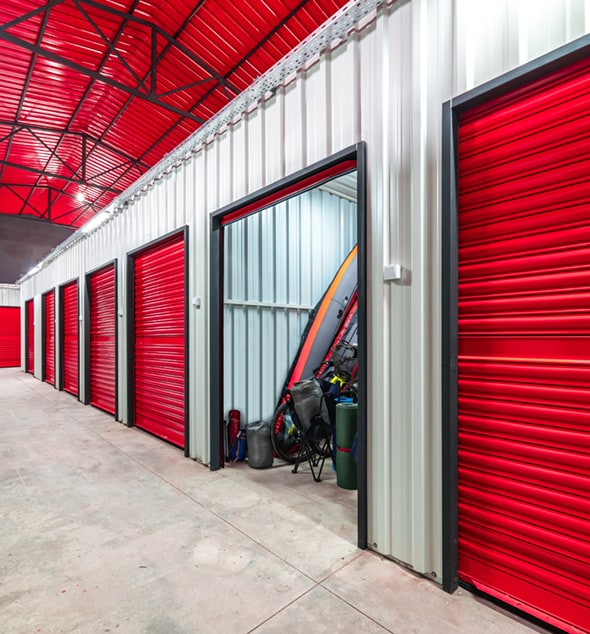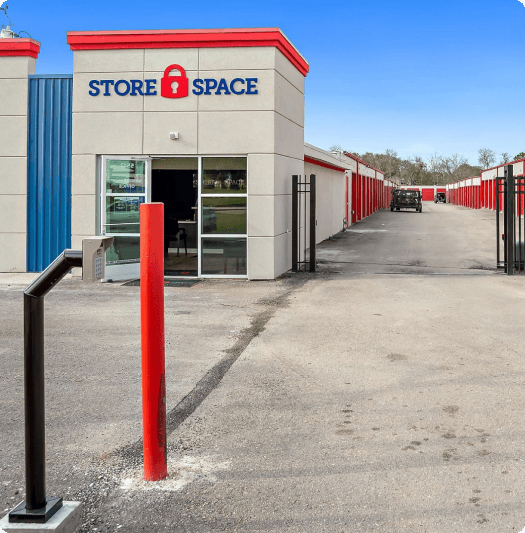Is Moving Your Business to a New Location the Next Step? 11 Tips to Help Your Move Go Smoothly

Moving your business to a new location can be an overwhelming process. Whether you’re moving across the street to a smaller retail space or to a huge area in a trendy neighborhood across town—business moves come with their own (plot) twists and turns. While keeping employees informed, transferring expensive equipment, and following a strict schedule, remember—this next chapter for your business is an opportunity for future success!
While your upcoming move might seem as discouraging as Les Misérables, we have a few tips to help it be as uplifting as Oh, The Places You’ll Go! Not to mention, self-storage will be there wherever you go, because Store Space has the best business storage solutions—before, after or during your move!
Below are our top 10 tips to get you started on moving your business to a new location:
1. Review Your Lease
2. Organize a Timeline
3. Create a Budget
4. Communicate With Your Employees
5. Tell Your Partners, Affiliates and Vendors
6. Change Your Address—Everywhere
7. Hire the Pros
8. Remember I.T.
9. Take Inventory
10. Go Crazy with Labels

Preface: Plan of Attack
Crack the cover on moving your business to a new location by making a plan! Moving an office is daunting enough, so why make it even more so? To help alleviate stress and make the process go smoothly, do your homework and research beforehand! First things first—if you’ve already picked your new office space (congrats!), it’s officially time to review the logistics. Here are three of the most important aspects of starting your moving plan.
Review your lease
Make sure to look over your current lease—early. Not only will you need time to find a new place (probably around six months or more), you may also be required to give your lessor or landlord sufficient notice that you’re leaving. Make sure you find out if there are fees if you break your lease early, before you set your moving date. Also, it’s important to note if you’re responsible for any damages to the building, even those that could occur during the move.
Organize a timeline
A schedule will be a major help in the long run. Figure out when you want to be officially moved out so you can work backward from there. A timeline allows you to determine when you need to hire a moving company, when to cancel utilities, when to submit change of address forms, and when to notify your existing customers of the change (more on this in a bit).
Create a budget
Set a budget! It’s important to know how much you can, and want, to spend on the move. By setting a budget you can narrow down moving companies, decide if you want to hire professionals to pack your items, and prevent overspending in areas where you could actually be saving.

Characters: Communication Breakdown
Just like your favorite character from that mystery novel who solves the crime with the help of sidekicks, a key part of relocating is to keep everyone in the loop. According to Amra Beganovich, founder of influencer marketing agency, Amra & Elma, you want to make sure your employees have ample time to adjust to working in a different location. You’ll also need to communicate with all external services or companies you work with, so they know you’re moving your business to a new location. Finally, don’t forget to fill out change of address forms for any customers that will need to know you’ve moved!
Communicate with your employees
Your employees should be among the first to know about your upcoming move. Make sure to provide details about the decision and the process. Give them an opportunity to ask questions as well as give feedback. Explain the potential impact this move can have on your business—it's being made to benefit your company after all!

Tell your partners, affiliates, vendors
Think of any possible companies that you do business with, including partners, affiliates, and vendors—they need to be in the know, too. Whether your relocation directly affects them or not, they still need to be updated and be able to contact you in your new space.
Tip: Just like finding a new location, finding a commercial contractor takes a lot of time. So, reach out early! If you’re looking to hang up a sign or renovate your new space, you’ll need a professional’s help. Make sure to get in touch with a contractor early on, save the stress of finding one at the last minute, and keep everything on track!
Change your address—everywhere!
The United States Postal Service is a great place to start to get all your mail forwarded and to get change of address cards for your major contacts, such as your vendors and suppliers. Along with notifying all involved parties like the IRS, your state's Secretary of State, lenders or insurance agencies, you need to update your address everywhere.
Don’t forget to keep your customers in the loop, too! Drop them a postcard, email them or even shoot them a text to give them your new address and maybe include a promotional offer if you want to encourage them to visit you in your new facility. You should also change your website, letterhead, business cards and even update social media platforms.
Tip: Don’t overlook your online presence. You’ll want to update your online listings through Google, Reputation.com and elsewhere that your customers find you.

Plot: In the Thick of It
Hire the pros
A professional moving company is a must when moving your business to a new location. Although it may seem like an unnecessary expense, you don’t want to be doing all the heavy lifting. Plus, liability can be a concern if your employees try to help with the process. A professional company makes it all easier. If you’re looking to save money, you can pack everything up yourself instead of hiring a packing company.

Remember I.T.
We’re not talking about IT, the scary clown from the Stephen King novel, we’re talking technology. When you’re moving spaces, you’ll need to disconnect and reconnect all your information technology, including your computers, servers, monitors, phones and any other electronics you may have in the office.
Whether you're relying on an internal or external I.T. team, make sure that they can get you hooked up and back online quickly once you reopen.
Tip: It seems like a no-brainer, but don’t forget to notify your internet provider and the utility companies of your move. Remember, it's a good idea to check the annual average utility costs of the place you're looking to move into.
Take inventory
As you start planning to pack up your office, it’s a good idea to take inventory of everything you plan to move. After you’ve gotten measurements of your new office, make a list of every item that will be in the new space, like furniture, electronics, equipment and supplies.
Tip: Another good idea is to take pictures of your items. If you have any issues while moving or need documentation for an insurance claim, they’re handy to have ahead of time.
Go crazy with labels
Just like moving houses or apartments, labeling should be your best friend! Label every box with its contents, where it came from, and any other descriptors that would help you identify it later on. Also, make sure to label the top and at least one side of each box. Labeling is a huge time and stress saver when you’re looking for certain items!
Use Self Storage
You can think of self-storage as your secret weapon—like Godric Gryffindor’s Sword in the Harry Potter Series. In your time of need, Store Space offers the best business storage solutions. Whether your items need protection from construction or renovation damage, you have reduced inventory space, or simply want office materials safe from prying eyes until security is installed, we’ve got your back while you’re relocating your business.
Not to mention, we offer a variety of premium amenities and features like drive-up storage, climate-controlled storage, easy rentals and move-ins! Self-storage is one thing you don’t have to worry about.

FAQs for Moving Your Business to a New Location
Q: Why would a business want to relocate?
A: There are a lot of reasons why a business might want to move. The company could be growing or downsizing, relocating to reach a different market, or moving to a space with cheaper rent to save money.
Q: What do businesses look for when relocating?
A: A few major aspects businesses look for when moving offices is cost efficiency, location and growth potential. Not only does the move have to make sense financially, but there needs to be room for prospective expansion.
Q: How do I announce my business is moving?
A: Although it may seem intimidating, don’t worry about announcing your move! Make sure your employees are among the first to know and give them the opportunity to raise any questions. Notify any companies you work with and be sure to change your address on all appropriate platforms from letterhead, online, social media to google.
Q: How do I move my business to another state?
A: There are lots of things to consider when moving your business to a different state. There are legal proceedings that must be taken care of; like officially closing and reopening your business to relocate across state lines or registering it as a foreign LLC or business in the new state. Beyond that, you can follow our tips to successfully move!
Q: How do I relocate my business after a natural disaster?
A: After your business faces a natural disaster, it’s important to remember you have resources at your disposal. Along with financial assistance, there are programs and loans to help get your business back on track in its new location. Try to get organized and start planning as soon as possible.
Finale to Moving Your Business to a New Location
Hopefully, these tips have helped you wrap your mind around moving your business to a new location. Close the book on your previous space and embrace your business move! If you find there are things that just won’t fit in your new space, self-storage is the perfect solution. Store Space Self Storage offers secure, clean and affordable storage units to meet all your business storage needs. Check out our storage location finder to find a facility near you and be sure to check back here for more helpful moving and organizing tips and tricks.







